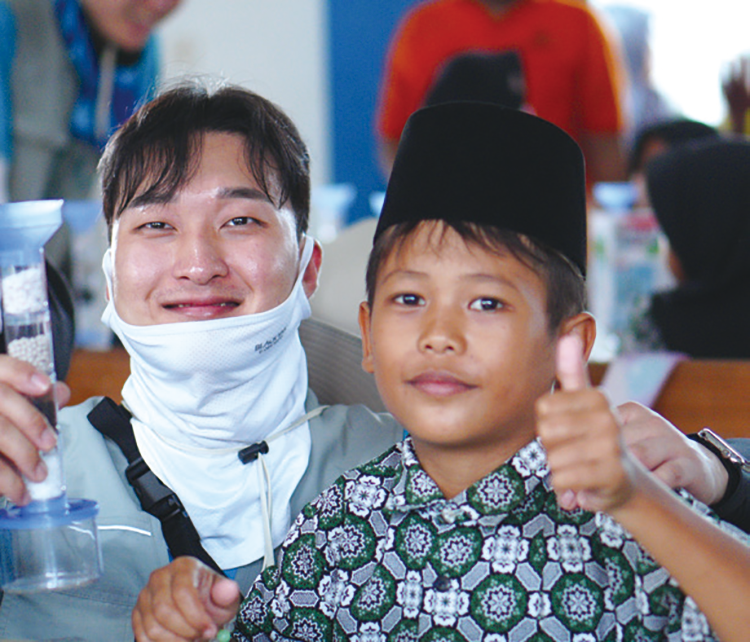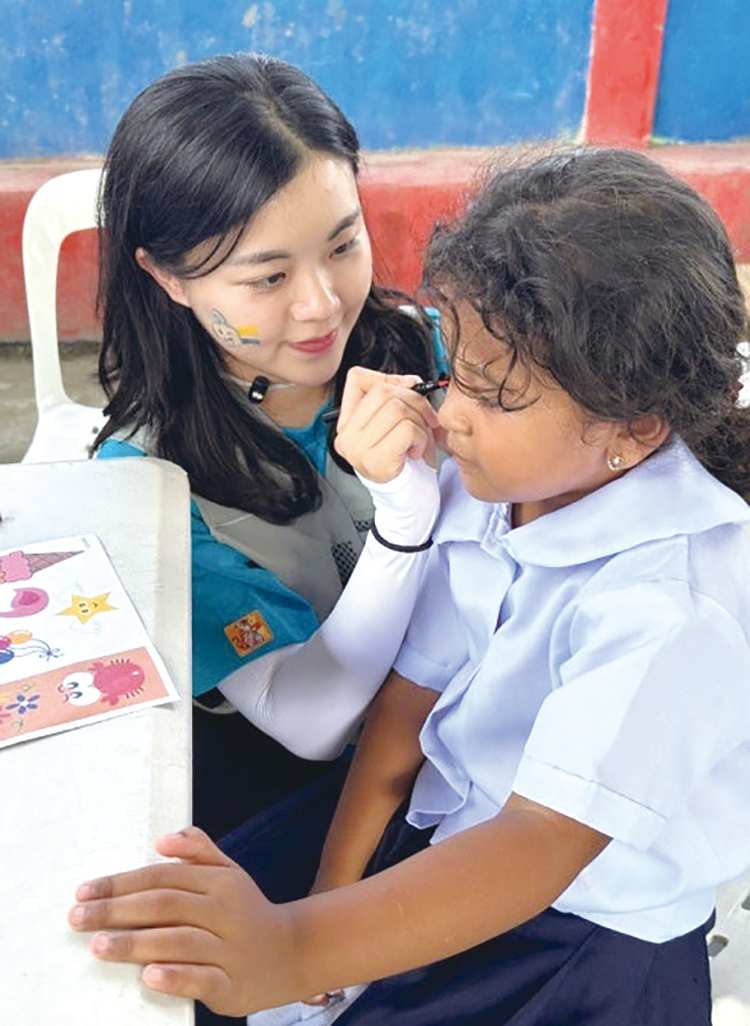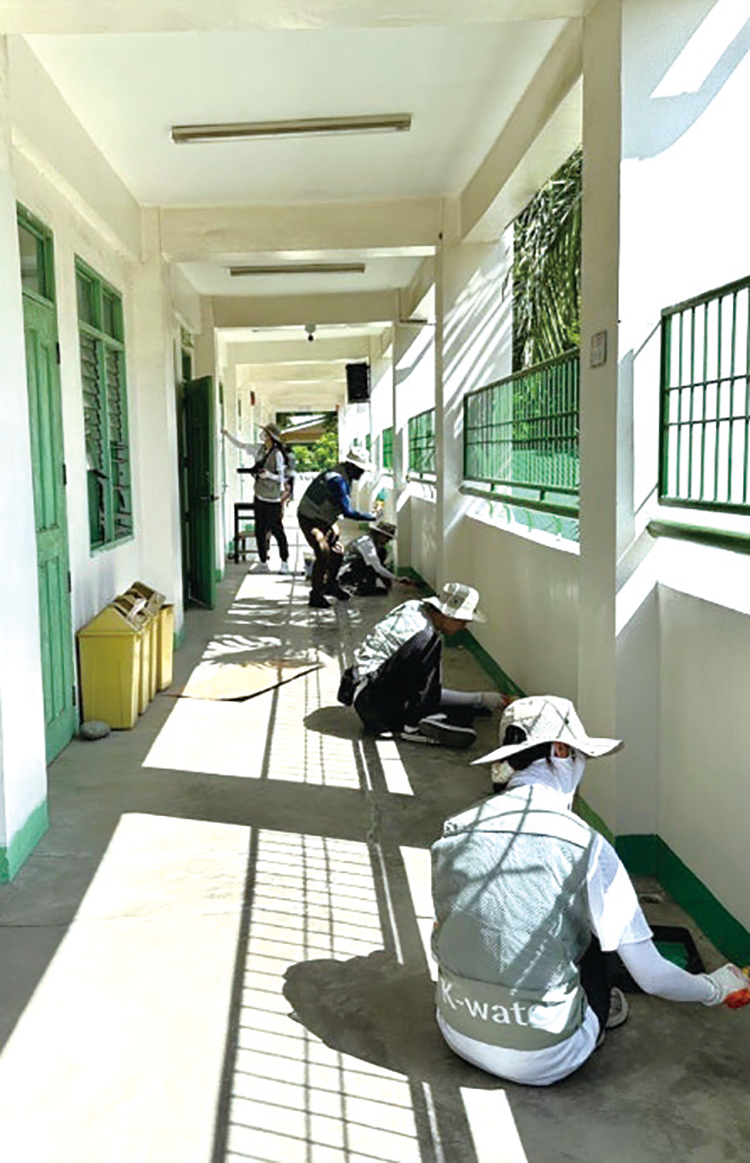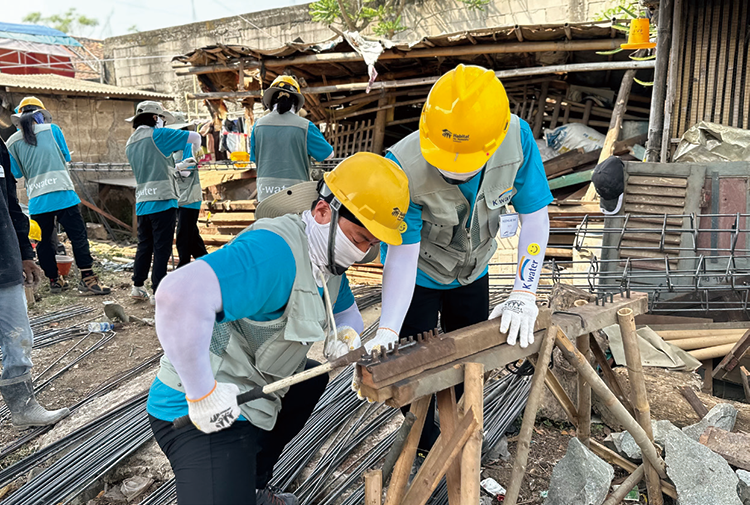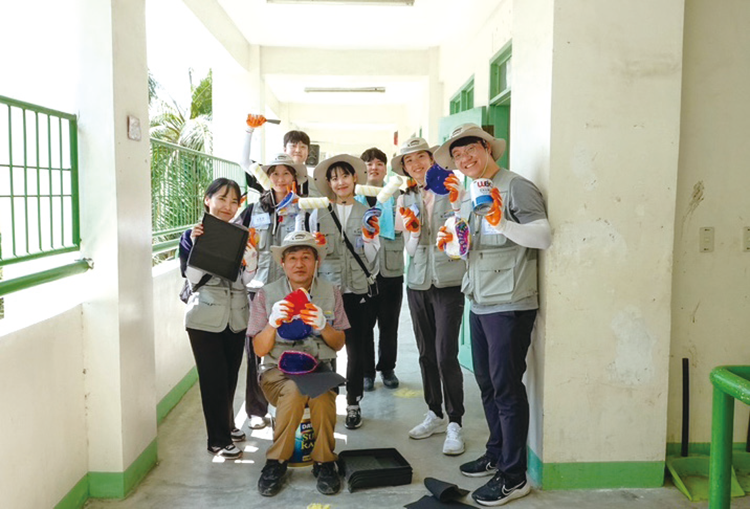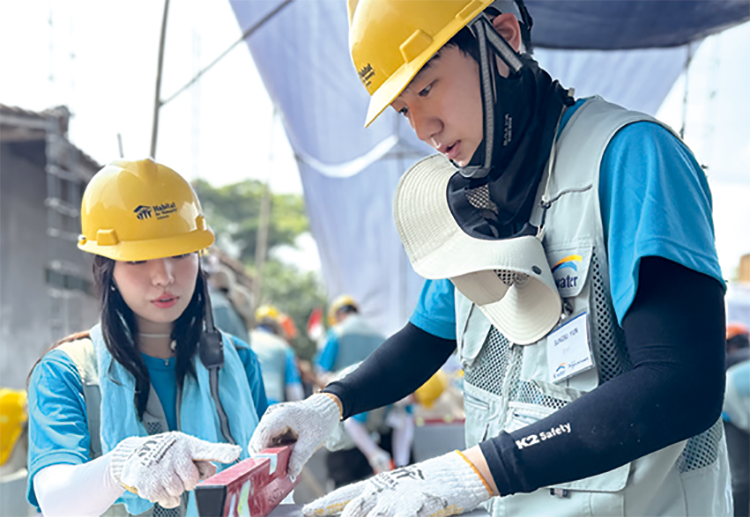Live on 2
Clean Water,
Something that is Taken for Granted
Overseas Social Contribution Activities in Indonesia and the Philippines
When you are thirsty, you drink water. When it is hot, you wash your face. You take a shower every day. You take all these things for granted. But using clean water for daily activities is not taken for granted in many other places around the world. The K-water volunteers group embarked on a mission to quench the thirst for people left out in the water welfare blind spots.
📝Text by. Editorial Team / 💾Source. Management & Innovation Services Department of K-water
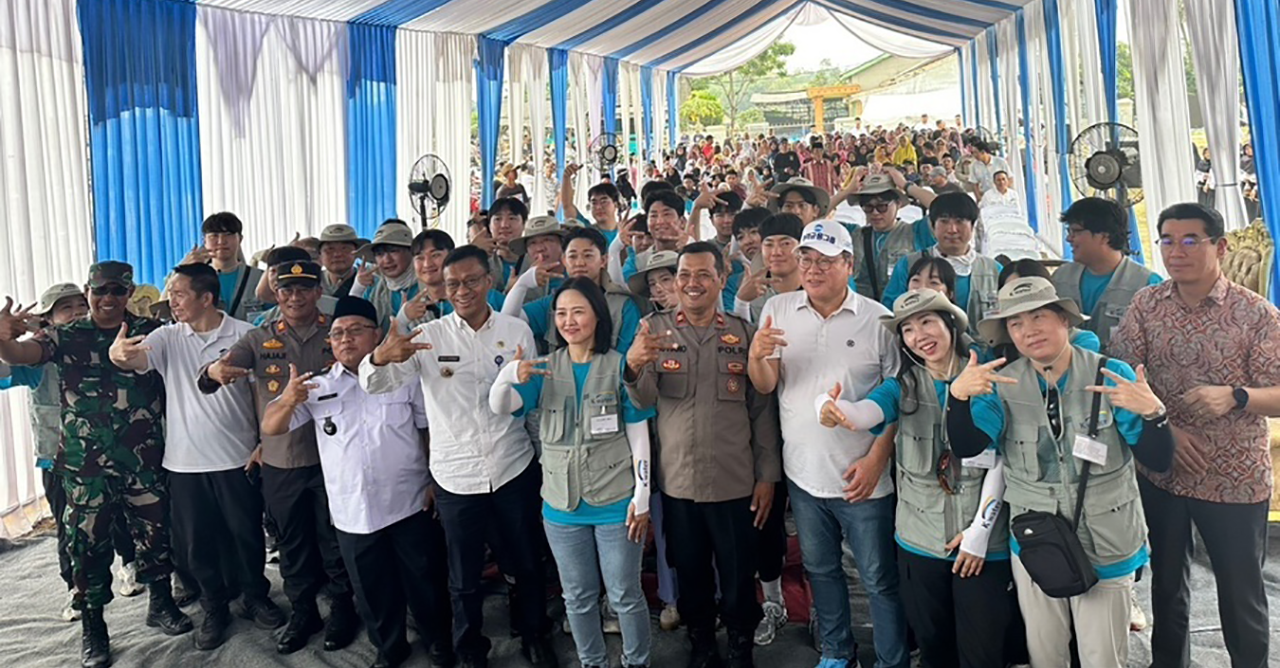
Water, a Priceless Resource that Is Essential to Life
Clean and safe water is a resource we need to meet one of our most fundamental desires for healthy life and a basic right we deserve as human beings. However, some 2.1 billion people around the world have no access to clean drinking water, with around 3.6 billion people deprived of proper hygiene facilities. As a result, as many as 8.2 billion people die of water-borne diseases.
As a water-specializing public institution, K-water installed tubular wells and energy-supplying facilities in areas suffering from water shortages to help local residents become self-sustainable as part of its social contribution activities. Since K-water started its overseas social contribution activities in Tadzhikistan in 2006, 804 K-water employees have volunteered in 13 countries including Georgia, Laos, and Myanmar.
This year, 34 employees went to Lajek in Tangerang City, Banten Province, Indonesia on September 1 for the first social contribution program of the year. Indonesia is particularly vulnerable to the climate crisis due to climate anomalies that have been frequently occurring since 2000 and its exposure to coastal areas. Six houses were built and designed to accommodate climate change with a rainwater collection device and a bio septic tank. K-water volunteers participated in the construction of three houses. They will also install bathrooms and washing sinks at major schools and homes that lack hygiene facilities and consequently have a higher risk of water-borne diseases and will educate local residents including children on maintaining proper hygiene to stay healthy. Meanwhile, upon arriving in Capas City, Tarlac, Philippines on September 22, 32 employees volunteered in education programs including the simple water purifier making project for kindergarteners and elementary school students and Korean language class. In addition, they will set up tubular wells in two villages experiencing water shortage and build libraries in communities lacking educational infrastructure.
Going forward, K-water will continue to exercise leadership in addressing water issues caused by climate change in different parts of the world and build a wider, stronger global cooperation network while remaining involved in helping people in water-deprived areas gain access to clean, safe water.

